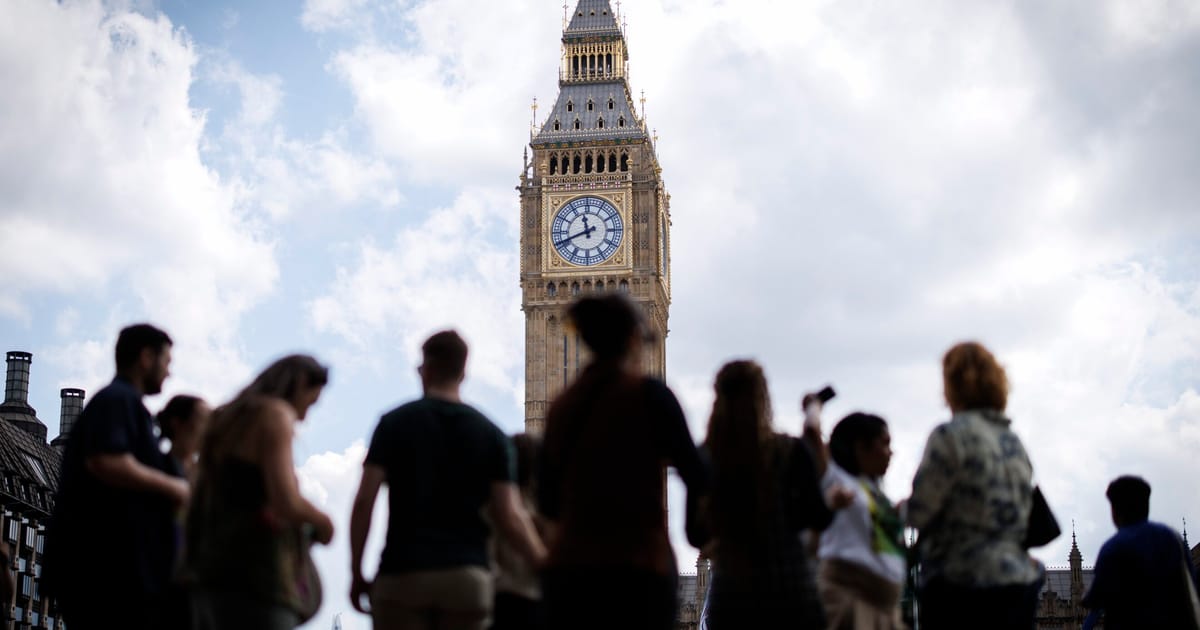The Bank of England said last week that, while it expected a solid performance in the first quarter, the U.K. economy is likely to slow again over the rest of the year. That’s due not least to a brief surge in exports as firms tried to get their goods into the U.S. before it imposed trade tariffs. In addition, housing transactions surged in March as buyers rushed to beat the end of a stamp duty holiday in April.
The ONS data only captures performance ahead of Donald Trump’s April 2 tariff package, which upset financial markets and prompted the International Monetary Fund to cut its 2025 growth outlook for advanced economies by 0.7 percentage points to 1.2 percent.
The U.K. was one of the first countries to ink a trade deal with the U.S. president — but as an open, medium-sized economy it remains exposed to any breakdown in the global trading order. BoE officials warned that the indirect effect of U.S. tariffs on the U.K.’s other trading partners, especially the EU, were likely to be larger than the direct ones on Britain.
‘No bad thing’
Deutsche Bank analyst Sanjay Raja said that that deal, and the prospect of others, “will help reduce global trade uncertainty and lessen the drag on the economy. He added that the bank may marginally upgrade its growth forecasts for the full year as a result.
“All in all, it’s no bad thing that the U.K. seems to have entered the April turmoil in good shape,” Anna Leach, chief economist with the Institute of Directors, said in emailed comments.
However, she added that it’s unlikely to continue, as both export and housing activity reverts to more normal levels in the coming quarters. A combination of higher utility bills and council taxes is likely to eat up gains in wages, while the “significant increase in employment costs” in April caused by the hike in employers’ National Insurance contributions [NICs] means that “the labor market is softening rapidly,” she added.
Recent business surveys such as S&P Global’s purchasing manager index have suggested that manufacturers in particular are suffering from the combination of NIC increases and trade uncertainty.
S&P’s chief business economist Chris Williamson noted earlier this month that, of all 31 economies surveyed by S&P Global, the U.K. is seeing the steepest rate of job losses and the fastest rate of export order losses. At the same time, he added, U.K. factories are reporting the highest goods price inflation and a supply chain that is suffering from delays to a greater extent than all other economies except Myanmar.
